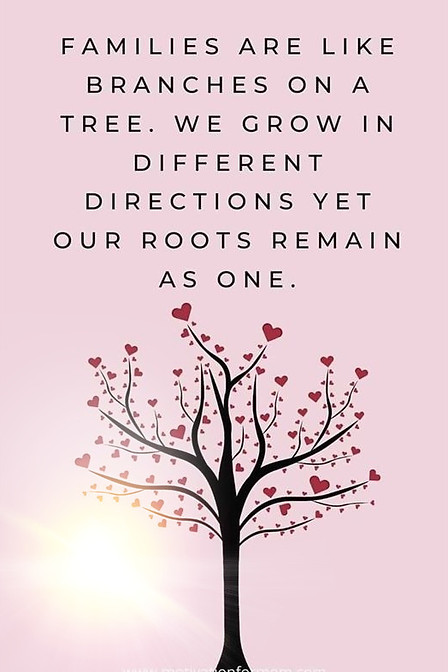
Understanding Mental Health
Within the Family
EBJ Jules content is not to be perceived or replied upon, in any way, as medical, mental health or nutritional advice.
If you are in crisis please reach out to a medical professional and/or call 9-1-1 for immediate support.
What does family
mental health look like?
The role of family in mental health is crucial and multifaceted. Families can be a powerful source of support, but they can also contribute to stress or dysfunction that impacts mental well-being.
Factors that can affect family mental health

1. Genetic and Biological Causes
-
Heredity: Mental illnesses like depression, bipolar disorder, schizophrenia, and anxiety disorders often run in families due to shared genetic vulnerabilities.
-
Brain chemistry: Some families may pass on imbalances in neurotransmitters, which can contribute to mental illness.
-
Prenatal factors: Exposure to stress, drugs, or infections during pregnancy may increase the risk for mental illness in children.
2. Psychological and Emotional Causes
-
Poor communication patterns: Families that struggle with expressing emotions or handling conflict can create emotional instability.
-
Unresolved trauma: Exposure to abuse, neglect, or witnessing domestic violence during childhood can increase the risk of PTSD, anxiety, or depression.
-
Over protectiveness or high expectations: Excessive pressure or control can cause stress, anxiety, or feelings of inadequacy.
-
Lack of emotional support: Feeling unloved, dismissed, or misunderstood within the family can deeply impact mental well-being.
3. Environmental and Social Causes
-
Family dysfunction: Chronic conflict, substance abuse, or separation/divorce in the family can be destabilizing.
-
Socioeconomic stress: Financial hardship, housing instability, or lack of access to healthcare can contribute to emotional distress.
-
Cultural or generational stressors: Families struggling with identity issues (e.g., immigration, racism, or generational trauma) may experience added stress that affects mental health.
Intersectionality
Often, these causes are interconnected. For example, a child may inherit a genetic predisposition to depression but only develop symptoms in response to a traumatic or emotionally neglectful home environment.
How to support family
mental health?
1. Emotional Support System
-
Families often provide the first line of emotional support for individuals struggling with mental health.
-
A stable, nurturing environment can foster resilience and coping skills.
-
Open communication within families can encourage early recognition and treatment of mental health issues.
2. Early Detection and Intervention
-
Family members are often the first to notice changes in behavior, mood, or functioning.
-
They can play a key role in encouraging someone to seek professional help and follow through with treatment.
3. Caregiving and Daily Support
-
Families may be directly involved in managing care, including helping with **medications
Mental Health
Resources
ConnexOntario Helpline
A free, confidential 24/7 referral service for mental health, addiction, and gambling support in Ontario. Accessible by phone: 1‑866‑531‑2600, live chat, or email. More than 25% of calls come from family members seeking help for loved ones. (Ontario)
Ontario 2‑1‑1 Service
For referrals to local social and health-related services, including mental health support. Available 24/7, over 150 languages, via phone at 2‑1‑1 or toll‑free 1‑877‑330‑3213, web chat, or email. (Ontario)
(CMHA) Ontario — Family & Caregiver Support
Offers peer support groups, educational workshops, and navigation assistance for caregivers supporting someone with mental illness. Programs include Family Outreach & Response (FOR), Mood Disorders Association Family Matters, FAME, and more.
Parents for Children’s Mental Health (PCMH)
Runs peer-led support groups across Ontario, along with public education, advocacy, and navigation support for families of children with mental health needs.
(family.cmho.org, CMHA Ontario)
Ontario Shores Centre – Family Resource Centre
A supportive space for families to access educational resources, support groups, and system navigation help, based at the Ontario Shores mental health facility in Whitby. (ontarioshores.ca)
Youth Wellness Hubs Ontario (YWHO)
Free multi-service hubs in 30 Ontario communities provide mental health, substance use, primary healthcare, social services, and more for youth aged 12–25. Families can participate in care planning. (Ontario)
Kinark Child and Family Services
Offers assessment, treatment, case management, and family support services for children aged 2–18 with complex mental health needs—plus autism-related support and caregiver programs. (kinark.on.ca)
Kids Help Phone
Provides 24/7 free, anonymous, and bilingual (EN/FR) counseling via phone (1‑800‑668‑6868), text and online chat. Available for youth aged 5–29 (and concerns affecting them). Also shares mental health information and referrals.
9‑8‑8 Suicide & Crisis Support Line
A toll-free, confidential service available across Ontario for those in immediate emotional distress or suicidal thoughts. (CMHA Ontario)
If you’d like help finding exactly which local programs or drop‑in clinics serve your city or region in Ontario—
or need resources for a particular age group or issue—I’d be happy to help dig deeper.